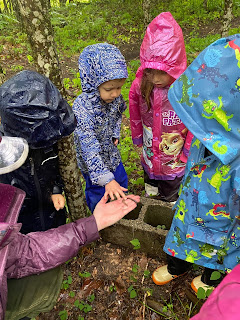VELS: Vermont Early Learning Standards
VELS: Vermont Early Learning Standards
The learning process for preschoolers looks very different than that of older students. Preschoolers are like sponges that soak up information all day long. This process is not always obvious to people who don't work with this age student. To many, the learning process of a preschooler looks more like play than what most of us think of when remembering our own schooling... sitting at desks, learning the "letter of the week", learning numbers, letters, and shapes from workbook pages...
The preschoolers at Westshire are exposed to early academic skills such as learning letters, numbers, shapes, and colors as well as sorting objects, measuring, counting, ordering, and so much more. There are times when the students will sit at a table and work on these skills specifically while playing board games, "building their name", cutting shapes for art projects, and participating in other seated activities, but more often, these skills are taught, observed, and learned through experiences during play. For example, your child might learn how to count (or practice counting higher) when playing hide and seek. They might learn that wood floats and rocks sink during one of our trips to the river. When building with blocks, our students learn about balance, how to share and work together with friends, how to plan ahead and take turns, how to deal with disappointment when their towers fall, and about resilience and persistence when they get through their disappointment and rebuild.
The Vermont Early Learning Standards (VELS) are a guide that Vermont preschool teachers use to help plan activities and guide student learning. Below are the first few pages of the Parent's Guide to the VELS for you to read and get an idea of how the Westshire staff is helping your child grow and learn in fun and interesting ways. Over the next several weeks, I will continue to include parts of the VELS in the Blog to help you understand our methods better.
Learning letters, taking turns, fine motor skills...




















Comments
Post a Comment